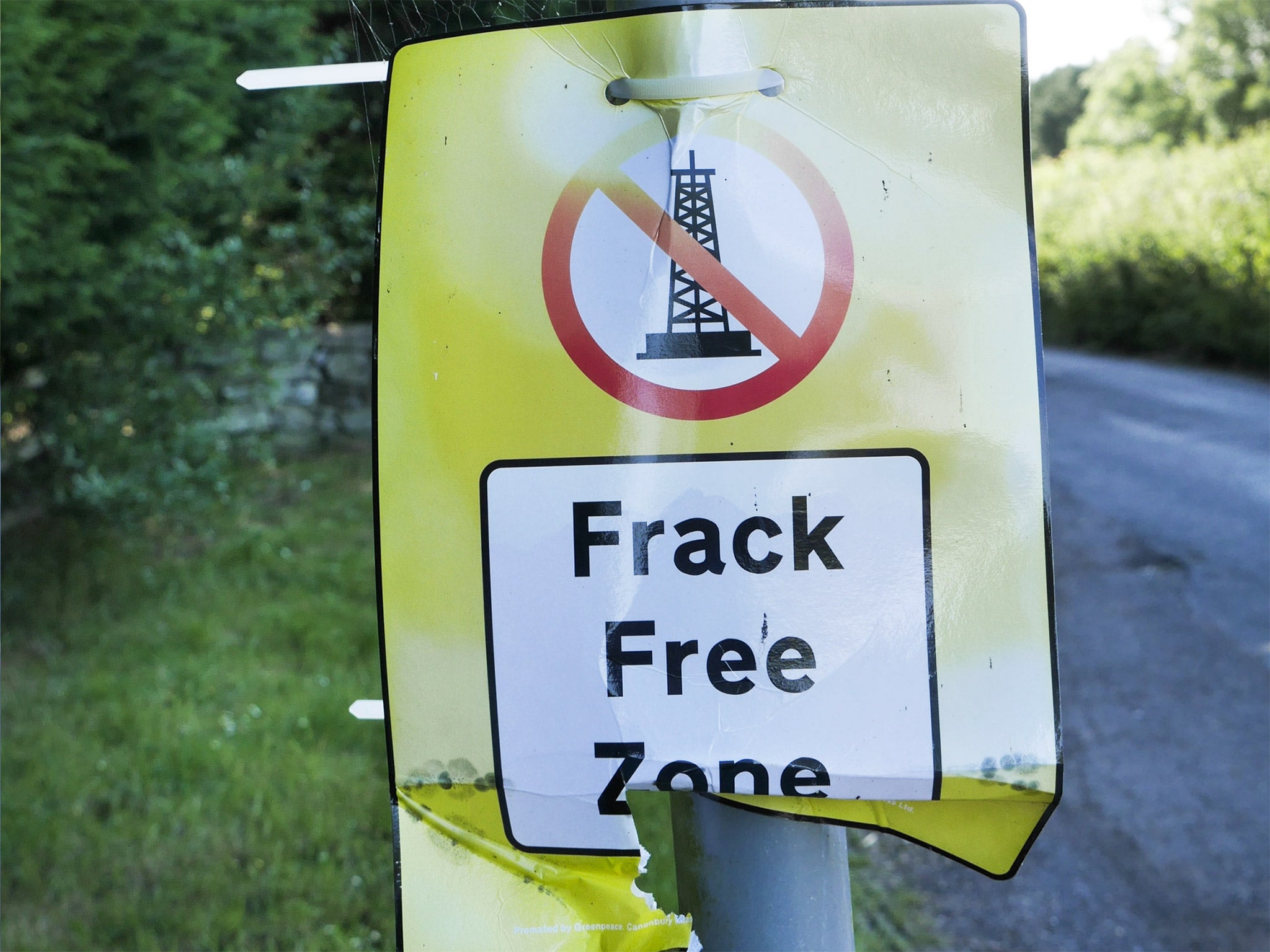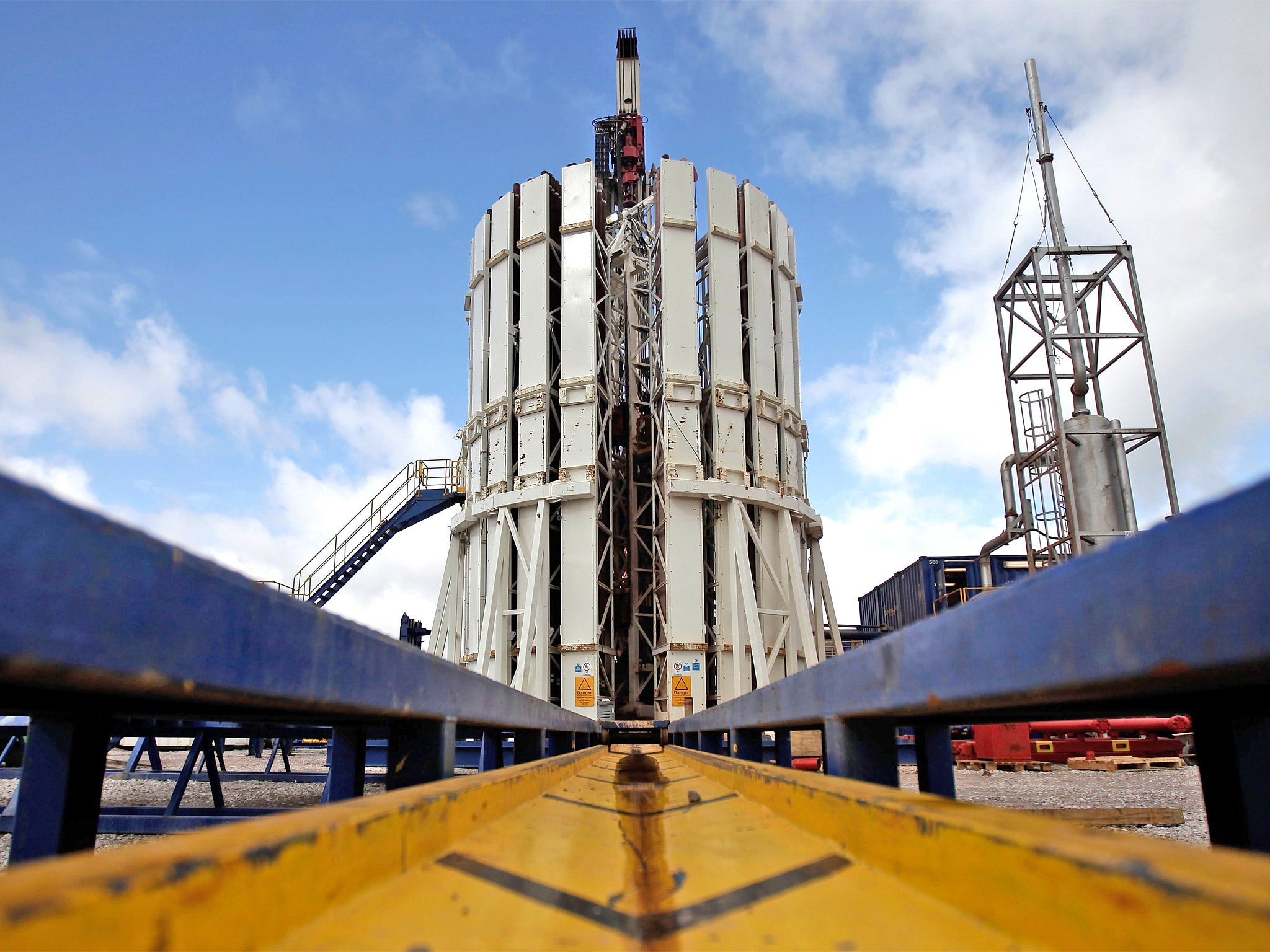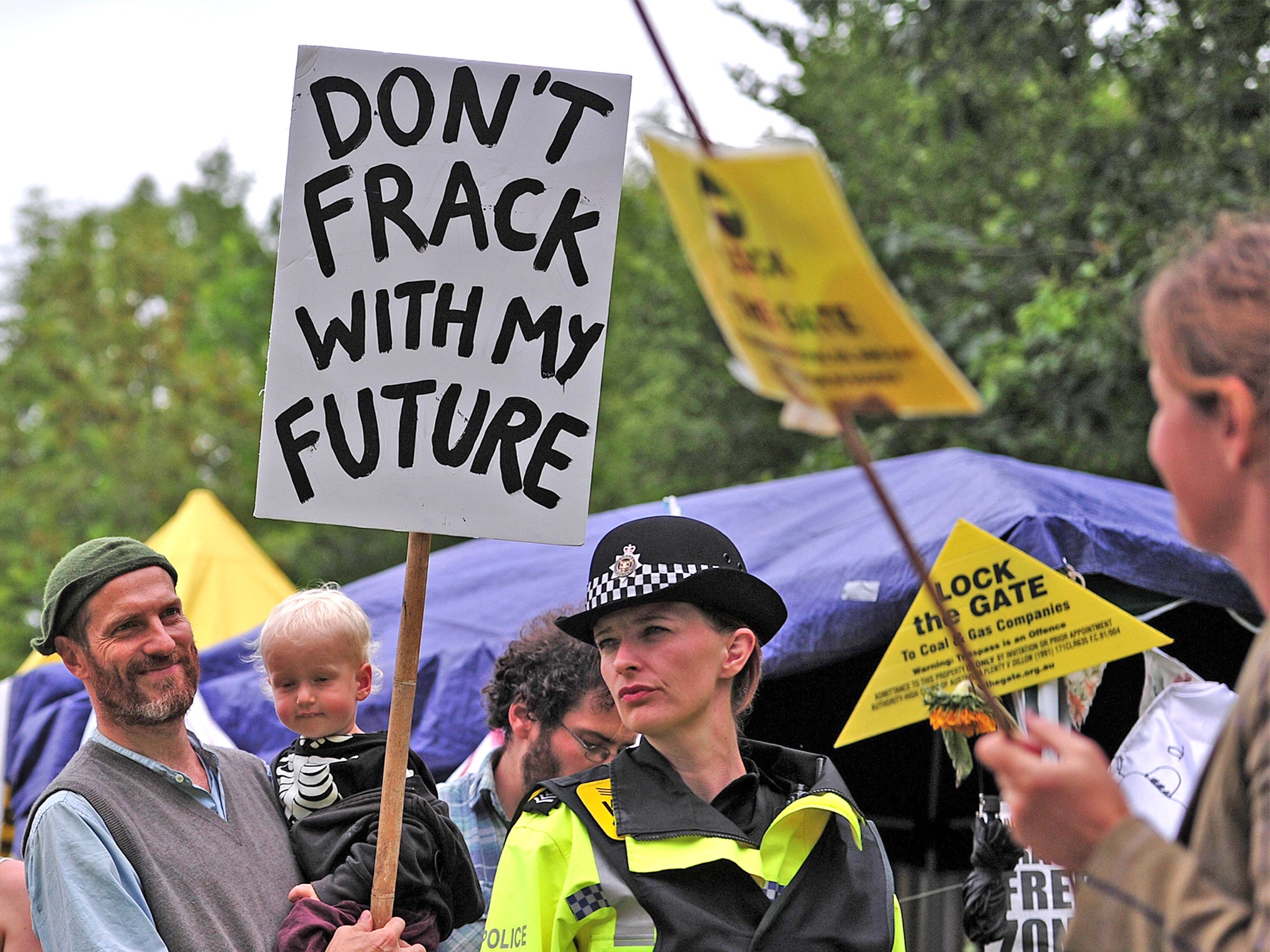Government accused of protecting Tory-voting South as every one of the 27 newly-awarded fracking sites is in the North and Midlands
'It looks suspiciously like the Tories are trying to avoid fracking taking place in their heartlands by pushing as much of it as possible up north'

The Government has been accused of protecting Conservative-voting southern constituencies from fracking, announcing that the next wave of shale-gas sites would all be in the North and Midlands.
Of the 27 oil and gas licences awarded by the oil and gas regulator, not one covered land south of Leicester. The new licences opened up 1,000 square miles of England to oil and gas exploration around Preston and Bolton, Leeds and Sheffield and Lincoln and Skegness.
The move follows controversy last summer when Lord Howell of Guildford, the former Tory energy minister and George Osborne’s father-in-law, suggested fracking should be limited to the North East of England because it has “large and uninhabited and desolate areas”.

“It looks suspiciously like the Tories are trying to avoid fracking taking place in their heartlands by pushing as much of it as possible up north,” said Friends of the Earth head of campaigns Andrew Pendleton. “But the North isn’t desolate and as the people of Lancashire have already shown, if the Government thinks it can simply impose fracking on the North to avoid upsetting the southern shires, then it will have to think again.”
“It’s a North-South divide,” said Gayzer Frackman, a campaigner from the Lancashire town of Lytham who changed his surname by deed poll. “It doesn’t matter whether the licences are in the North or the South, we are coming together and the Government is fighting a losing battle.”

The licences announced on 18 August allow companies such as Centrica-backed Cuadrilla and the French state energy giant GDF Suez to hunt for oil and gas on English land, although they will need further permits to be allowed to frack there. INEOS, the Swiss chemicals giant which owns the Grangemouth refinery in Scotland, has also been offered three licences – near Sheffield, Chesterfield and Mansfield.
“We are keen to move quickly to evaluate the potential of this resource and determine if we can economically produce gas from our licences,” said Gary Haywood, who runs the company’s fracking operation.
Oil & Gas Authority, the industry regulator, said nothing should be read into the absence of the South – while the Government pointed out that southern areas are under consideration for future licences.
In addition to the licences granted yesterday, the Government will offer up to 159 more in the future, subject to environmental assessment and consultations. About 30 could be for sites in the South – mostly around Bournemouth, Weymouth, Bath, Bristol and Hereford.
A handful of oil and gas licences have already been awarded in the South, but these were issued around a decade ago when few people had heard of fracking and the technique had yet to become controversial. Licences have also previously been granted in Lancashire – but last month the county council put a block on commercial drilling by Cuadrilla. The company is appealing.

Protests in the West Sussex village of Balcombe in 2013 – over fears that a local licence-holder would seek to frack nearby – helped propel fracking into the spotlight. Campaigners suggested yesterday they had made the Government and fracking companies wary of the South.
“According to the Government, the areas today earmarked for fracking are supposed to be uncontroversial. This will be an insult to people who live in the North of England. They will be on the fracking frontline and will face noise, air pollution and threats to local groundwater,” said Greenpeace campaigner Daisy Sands.
A DECC spokesperson said: “Decisions on where to award these oil and gas licenses are made by the independent Oil and Gas authority, not Ministers and it is disingenuous to suggest otherwise.
“The Government has been clear that we are backing the safe development of shale gas because it's good for jobs, good for our energy security and part of our plan to ensure that the economic potential of all parts of the UK is realised”.
Join our commenting forum
Join thought-provoking conversations, follow other Independent readers and see their replies
Comments